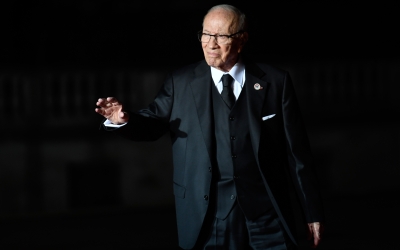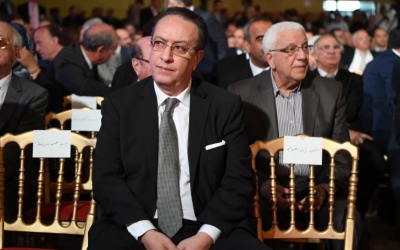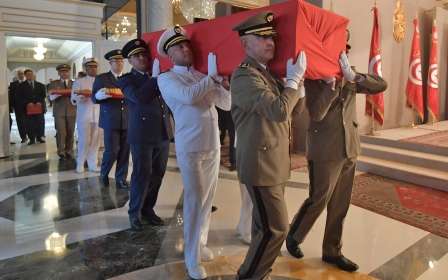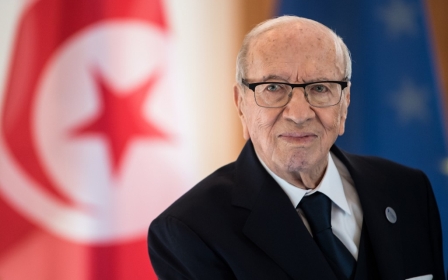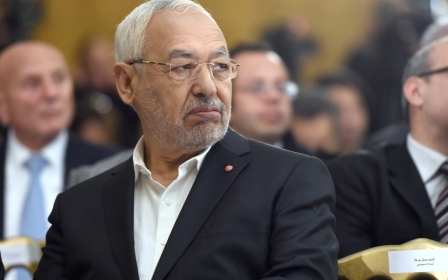Tunisia’s Ennahda nominates Abdelfattah Mourou for presidential elections
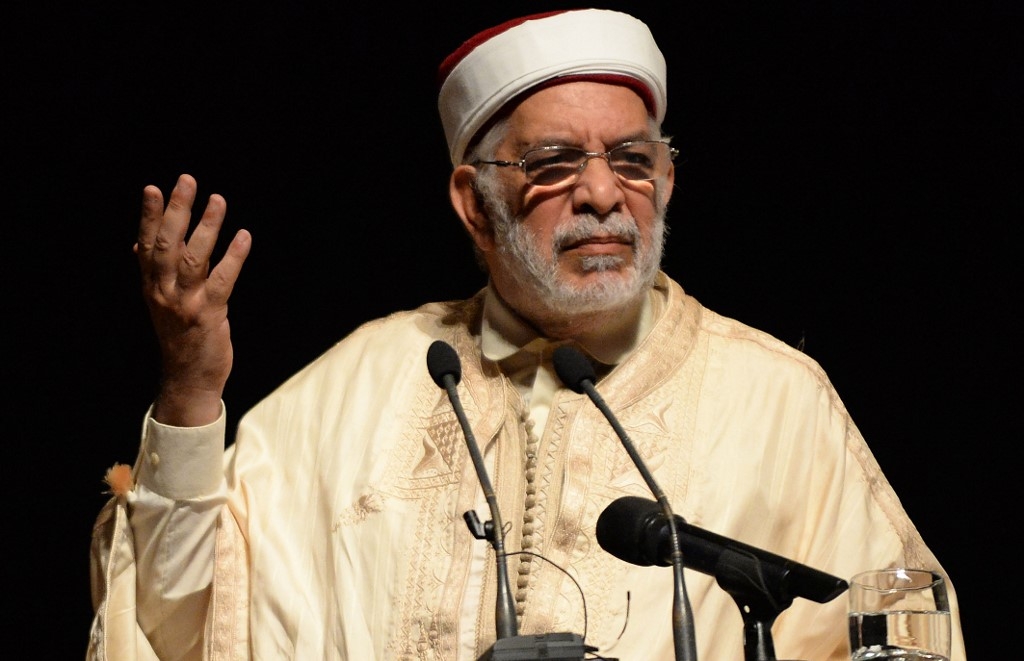
Tunisia’s largest political party has named its deputy leader Abdelfattah Mourou for president after a unanimous vote by its senior leaders, Ennahda revealed on Tuesday evening.
Mourou, 71, is Ennahda’s first ever presidential candidate since the movement was established 38 years ago.
A lawyer by training and the current interim parliament speaker, Mourou will run in elections scheduled for 15 September, which were brought forward two months following the death of President Beji Caid Essebsi in July.
Ennahda is a self-described Muslim Democratic party, and has been a key player in Tunisian politics since the 2011 pro-democracy revolution.
Its founder and leader Rached Ghannouchi said the choice of Mourou as the party’s candidate is a sign of Ennahda’s “faith in democracy, the republic and the Tunisian revolution”.
In a statement to Mosaique FM, Ghannouchi defended his party’s decision to field a presidential candidate despite its previous decisions to the contrary.
“Why should we not participate in elections like everyone else?” he asked the local radio station. “It is normal for political parties to compete against each other.”
The decision to field a presidential candidate has sparked a division within the party, with one senior leader, Rafik Abdelsalam, publicly denouncing it as “a wrong choice that does not meet the requirements of the current phase”.
In the presidential elections that followed the toppling of Tunisia’s longtime autocrat Zine el-Abidine Ben Ali, Ennahda chose not to file its own candidate in a bid to avoid secular-Islamist polarisation.
The movement backed the independent intellectual Moncef Marzouki to become president in 2011 and secular veteran politician Essebsi three years later.
Meanwhile, Ennahda’s main political rival Nidaa Tounes has announced it would back the incumbent Defence Minister Abdelkarim al-Zbeidi, 69, in the presidential race. Zbeidi, a civilian politician and Essebsi ally, officially submitted his papers on Wednesday as an independent.
'Why should we not participate in elections like everyone else? It is normal for political parties to compete against each other'
- Rached Ghannouchi, Ennahda leader
Prime Minister Youssef Chahed, 43, is another key candidate. He is a former Nidaa Tounes member and current leader of the Long Live Tunisia party, which mainly consists of former Nidaa Tounes members.
Independent businessperson and media mogul Nabil Karoui, 56, has also officially applied for candidacy.
According to the electoral commission, 29 candidates from across the political spectrum have submitted their papers as of Wednesday, two days before the final deadline.
To be considered for candidacy, applicants need 10,000 signatures from the public, or ten members of parliament, or 40 elected municipal leaders.
The final list is due to be announced by the commission by 31 August.
'Progressive' and 'aristocratic'
Analysts who spoke to Middle East Eye predicted that the final race would most likely be between Mourou and Karoui, due to the possible vote splitting between Chahed and Zbeidi, who hail from the same modernist political current.
“Presenting Mourou as a candidate for the presidential elections is a clever choice,” Tunisian political analyst Mohamed Dhia Hammami told MEE.
“His popularity goes beyond the traditional base of Ennahda. If he gets to the second round, his chances of becoming president are very significant.”
Mourou, who speaks Arabic, French and German, was born in the capital Tunis in 1948.
A former political prisoner, Mourou is a prominent leader of the Tunisian Islamist movement. He is one of Ennahda's founders.
His political activism led to his arrest twice, in 1973 and 1991. Mourou then suspended his work with Ennahda for decades, until the 2011 revolution when he returned from exile in Saudi Arabia to run for parliament.
In 2012, he rejoined the movement and was elected as a member of its Shura Council and vice president, subsequently being voted into the Tunisian parliament in 2014, becoming its deputy speaker.
Mourou stands out from the rest of Tunisian politicians by choosing to dress in the traditional "jebba" and "chechia" hat.
According to Hammami, by hailing from an "aristocratic background" Mourou is allowed a privileged status among the elites.
'Presenting Mourou as a candidate for the presidential elections is a clever choice'
- Mohamed Dhia Hammami, analyst
“Unlike Ghannouchi, who comes from the south, who studied in Egypt and Syria, Mourou was born and raised in the capital and went to Tunisian elite schools. He does not have a problem of acceptance by the national elites. He belongs to them,” Hammami said.
Sharan Grewal, a visiting fellow at the Brookings Institution think tank, described Mourou as “one leader of a liberal and pragmatic faction” within Tunisia’s Islamic movement.
Mourou has advocated a strict division between the religious and political work of Ennahda, and has expressed his support for Muslim women’s choice to marry non-Muslims, a controversial issue in Islam.
If he becomes president, however, his views on foreign policy would be the most significant. According to Tunisia's constitution, the president's mandate is limited to foreign policy, defence and national security.
Mourou has been critical of US President Donald Trump’s policies in the region, particularly the decision to move the US embassy from Tel Aviv to Jerusalem and his support for Israel.
But, according to Hammami, “a president from Ennahda would probably keep the status quo” when it comes to bilateral relations between Tunisia and the US.
Middle East Eye propose une couverture et une analyse indépendantes et incomparables du Moyen-Orient, de l’Afrique du Nord et d’autres régions du monde. Pour en savoir plus sur la reprise de ce contenu et les frais qui s’appliquent, veuillez remplir ce formulaire [en anglais]. Pour en savoir plus sur MEE, cliquez ici [en anglais].


